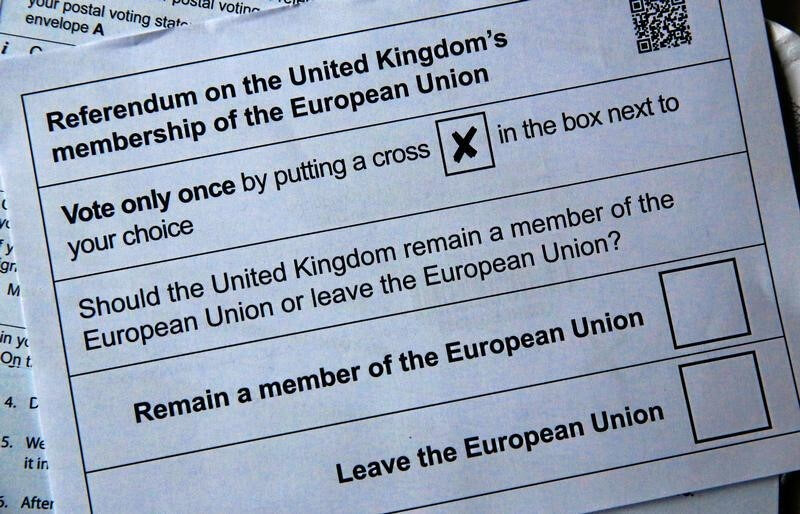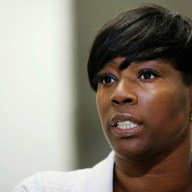By Tom Miles
GENEVA (Reuters) – The idea that Britain could scrap all import tariffs to avoid long, messy trade negotiations after quitting the European Union is “almost theoretical” and probably not feasible, the head of the World Trade Organisation said in an interview. While leaders of the so-called Brexit campaign have mainly advocated the forging of new trade deals with the EU, United States and China if Britain votes “Leave” on June 23, some economists have proposed the more radical zero-tariff plan. They call it the “WTO option” because Britain would rely on the basic rules of the 162-member organization to police unfair trade. But WTO Director-General Roberto Azevedo told Reuters: “The example that we’re talking about is an extreme example, and I think it’s very unlikely that politically this would be feasible. “My experience has been that I haven’t seen a true free trader on this real earth yet. Everybody somewhere has some degree of protection or limitation in one sector or another.”
Hong Kong and Macau offer duty-free models, but their economies are smaller and less complex than Britain’s. And even if goods trade was totally liberalized, it might still be useful to have a written agreement on liberalizing trade in services, rather than a blank sheet, Azevedo said. “The moment you want to write a limitation here or there, technically any member of the WTO may say ‘I disagree with the limitation that you’re introducing’,” he said.
He insisted that he wasn’t telling Britain how to vote in this month’s referendum or passing judgment on the policy options.
“All that I am saying is that unless you go for some kind of radical, almost theoretical, argument that no negotiations are needed, any other scenario would require some negotiation with all WTO members.” TRADE CHOICES
Pro-Brexit campaigners, who lead the “Remain” camp in the latest opinion polls, have mostly argued that the world’s fifth largest economy would be able to forge new trade deals on advantageous terms with the EU, the United States and China. But Patrick Minford, a former adviser to Prime Minister Margaret Thatcher and member of the group “Economists for Brexit”, told Reuters that the WTO option, as an alternative to these kinds of agreements, would be “incredibly beneficial to the British economy” by bringing down import prices. “That creates the tremendous dynamism, because falling prices means unprotected industries have lower input costs, and wages of course come down because consumers have lower costs. So we afford to cut wages and still be better off, and improve the competitiveness of British industry,” he said. Azevedo, however, said that instead of the promised clean break, pulling out of the EU would plunge not just Britain but also Brussels into lengthy talks with the rest of the WTO as the two newly divorced economies would both need to rejig their relationships with the rest of the world. “It is very likely that both the EU and the UK will have to negotiate with all WTO members,” Azevedo said.
To disentangle themselves, London and Brussels would have to allocate Britain a portion of the agricultural subsidies and low-tariff quotas that currently come under the EU umbrella.
“Those are not easily sorted out when somebody enters the EU, or leaves the EU,” Azevedo said.
Not only Europe’s food sector, but global interests such as New Zealand lamb exporters and Brazilian beef farmers could be dragged into such a negotiation.
Leading pro-Brexit politicians are confident Britain could do a quick deal with the EU to keep trade flowing. But even if that happens, Britain’s rights at the WTO will be in “a vacuum”. “I don’t see how just negotiating with the EU is going to obviate the necessity to establish what the parameters are between the UK and all other WTO members,” Azevedo said.
He declined to predict how long such talks could take.
“It could be a few years, it could be decades. But our experience suggests that to expect smooth sailing and quick results would be a high-risk bet.”
The EU has not yet finalised its WTO rights after enlarging to 25, 27 and finally 28 member states, which could add a further level of complication.
“It is not far-fetched to imagine that some members may say that it’s difficult to negotiate the Brexit terms with both the EU and the UK while the current status of the EU membership is not fully ascertained,” Azevedo said. (Reporting by Tom Miles; Editing by Mark Trevelyan)
World trade chief says post-Brexit ‘WTO option’ may be unfeasible for UK

By Tom Miles
















